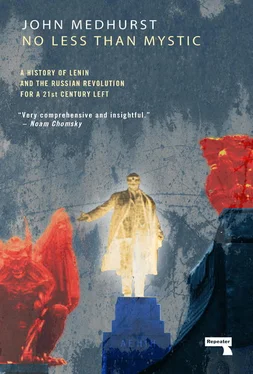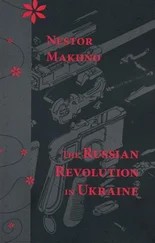They took their objections to a further meeting of the CC on 16th October, this time attended by leading local Bolshevik activists from the Petrograd Committee, the Military Organisation of the Bolshevik Party and the Petrograd Soviet. The debate was even more fractious. The leader of the Military Organisation, Krylenko, reported that a majority of the Organisation did not support an armed uprising and even those that did wished for the initiative to come from the Soviet, not the party. Sokolonikov shifted his position but stressed that any uprising must occur after the Second Congress of Soviets, not before. Others, like Miliutin, were not keen on an uprising no matter what the timing. But with Lenin forcefully arguing for an insurrection as soon as possible, the meeting agreed that the initial decision to plan an armed insurrection would proceed, although the final “go” for the uprising would be at the discretion of both the party (i.e. the CC) and the Soviet (i.e. the MRC, not the actual Soviet).
At this point, Zinoviev and Kamenev broke ranks and sent a letter entitled “On the Current Situation” to key party organisations. In it they laid out the case against an armed insurrection. “We are deeply convinced”, they wrote, “that to call at present for an armed uprising means to stake on one card not only the fate of our party but also the fate of the Russian and international revolution”. Proposing instead that the Bolsheviks throw themselves into the elections for the Constituent Assembly, in which they anticipated securing about a third of the seats, they suggested that “The Constituent Assembly will be able to find support for its revolutionary work only in the Soviets. The Constituent Assembly plus the Soviets–that is the combined type of state institution towards which we are going”.
Zinoviev and Kamenev challenged Lenin’s assertion that the mass of the people supported the Bolsheviks. “In Russia a majority of the workers”, the letter explained, “and a substantial part of the soldiers are with us. But all the rest is dubious. We are all convinced, for instance, that if elections to the Constituent Assembly were to take place now, a majority of peasants would vote for the SRs. What is this, an accident?” This was to prove a far more accurate assessment than that of Lenin or Trotsky. Yet it missed the key point, later explained by Trotsky, which was that “the peasants might have strong revolutionary interests and an intense urge to realise them, but cannot have an independent political position”. 11At the time neither Trotsky nor Lenin explained to the vast majority of Russia’s people that they were not sociologically important enough to be allowed a political position independent of that assigned to them by the Bolsheviks.
Zinoviev and Kamenev stressed a further weakness in plans for insurrection–a total lack of planning for the aftermath. “If amongst the great masses of the poor of the capital there were a militant sentiment burning to go into the streets”, they wrote,
it might have served as guarantee that an uprising initiated by them would draw in the biggest organisations (railroad unions, unions of postal and telegraph unions, etc.) where the influence of our party is weak. But since there is no such sentiment even in the factories and barracks, it would be a self-deception to build any plans on it.
As events post-October were to demonstrate–when trade unions and Factory Committees opposed the Bolsheviks’ plans for one-party government and a top-down reorganisation of industry–it was a self-deception.
Kamenev and Zinoviev had allies in the Menshevik and SR parties who desired socialist reform but feared the Leninists were simply unrealistic. The influential SR journalist Pitirim Sorokin, in one of his popular “Notes of a Sociologist” newspaper columns, put his finger on the similarity of Lenin and Trotsky’s belief in Russia setting off a worldwide revolution to the right’s idealistic “Slavophilism”, i.e. the concept that apparently backward Slav nations would provide fresh, uncorrupted cultural leadership to degenerate Western Europeans. “Bolshevism is surely that same Slavophilism inside out”, wrote Sorokin in September. “Just like the Slavophiles, we have come to believe that we are indeed the saviours of humanity”. But, as Sorokin pointed out, “The west has not reached the stage of majority socialist government, while we are already demanding a proletarian dictatorship”. 12
Sorokin’s blunt assertion that the Bolsheviks were running before they could walk would have been approved of by Zinoviev and Kamenev. They would have preferred to work within the kind of Bolshevik-Menshevik-SR alliance that was briefly on offer before the July Days. Although later compelled to repudiate and recant their letter, it accurately foresaw the disastrous results of independent Bolshevik action if sundered from the wider left and eventually from the Soviets themselves. Of the Bolshevik dissenters a particularly astute socialist biographer of Trotsky later concluded, “It is hard to believe that the fate of Russia would have been worse had the party followed the line of Zinoviev, Kamenev, Nogin and the other moderates”. 13
Trotsky had already successfully sent MRC commissars into the Petrograd garrison to assume command from the General Staff. On 23rd October, as a further test of his power as Chair of the MRC, he ordered 5,000 extra rifles for the civilian Red Guards. The rifles were delivered, but the plans of the MRC had not gone unnoticed. In the Soviet he was openly challenged about rumours of a planned insurrection and whether the order for the rifles was part of those plans. Trotsky, a master of linguistic evasion, replied, “I declare on behalf of the Soviet–we have not decided on any armed action”. That was true. The Soviet had not. The Bolshevik Party had.
With the Second Congress of Soviets postponed to 26th October, Trotsky and the MRC began to position their forces for an armed insurrection the day before. The Menshevik historian Sukhanov caught a flavor of Trotsky’s activity during these crucial days. “Trotsky, breaking off from his work in the Smolny Institute, flew from the Obukhov factory to the Pipe factory, from the Putilov works to the Baltic works, from the Manege to the garrisons, and it seemed as if he talked simultaneously at all these places. Every Petrograd worker and solider personally knew and heard him”. 14Even the Provisional Government, often paralysed, had to respond to what was clearly preparation for an attempt at its overthrow. On 23rd October it sent in troops to close Pravda . This provided Trotsky the pretext he needed.
When Kerensky started to deploy troops loyal to the Provisional Government around the city to forestall rebellion, Trotsky launched the insurrection. On the evening of 24th October he issued “Order Number One” to the MRC and its forces. This read:
The Petrograd Soviet is in imminent danger. Last night the counter-revolutionary conspirators tried to call the Junkers and the shock battalions into Petrograd. You are hereby ordered to prepare your regiment for action. Await further orders. All procrastination and hesitation will be regarded as treason to the revolution. 15
Trotsky later admitted the forces at his disposal amounted to no more than “a few thousand Red Guards, two or three thousand sailors, and a score of infantry companies”. 16He controlled these forces from the Smolny Institute, an exconvent now turned into the bustling centre of the MRC’s work. The total number of those who took part in the insurrection was at the most about 20,000, including sailors on the battleship Aurora and the Red Guards.
Starting at 2am on 25th October, they quickly took over the railway stations, the banks, the telegraph offices, the power stations and the bridges. They met no resistance. The Tauride Palace itself, home of the Soviet and only a few minutes away from the Smolny Institute, was swiftly taken. By the morning it was done. Only the Winter Palace, seat of the Provisional Government, did not fall as planned. Lenin, who had returned from Finland and slipped quietly into the Smolny, was frantic for news that the Winter Palace had fallen and the Ministers of the Provisional Government arrested. Only then could he legitimately claim that one government had been replaced with another.
Читать дальше












